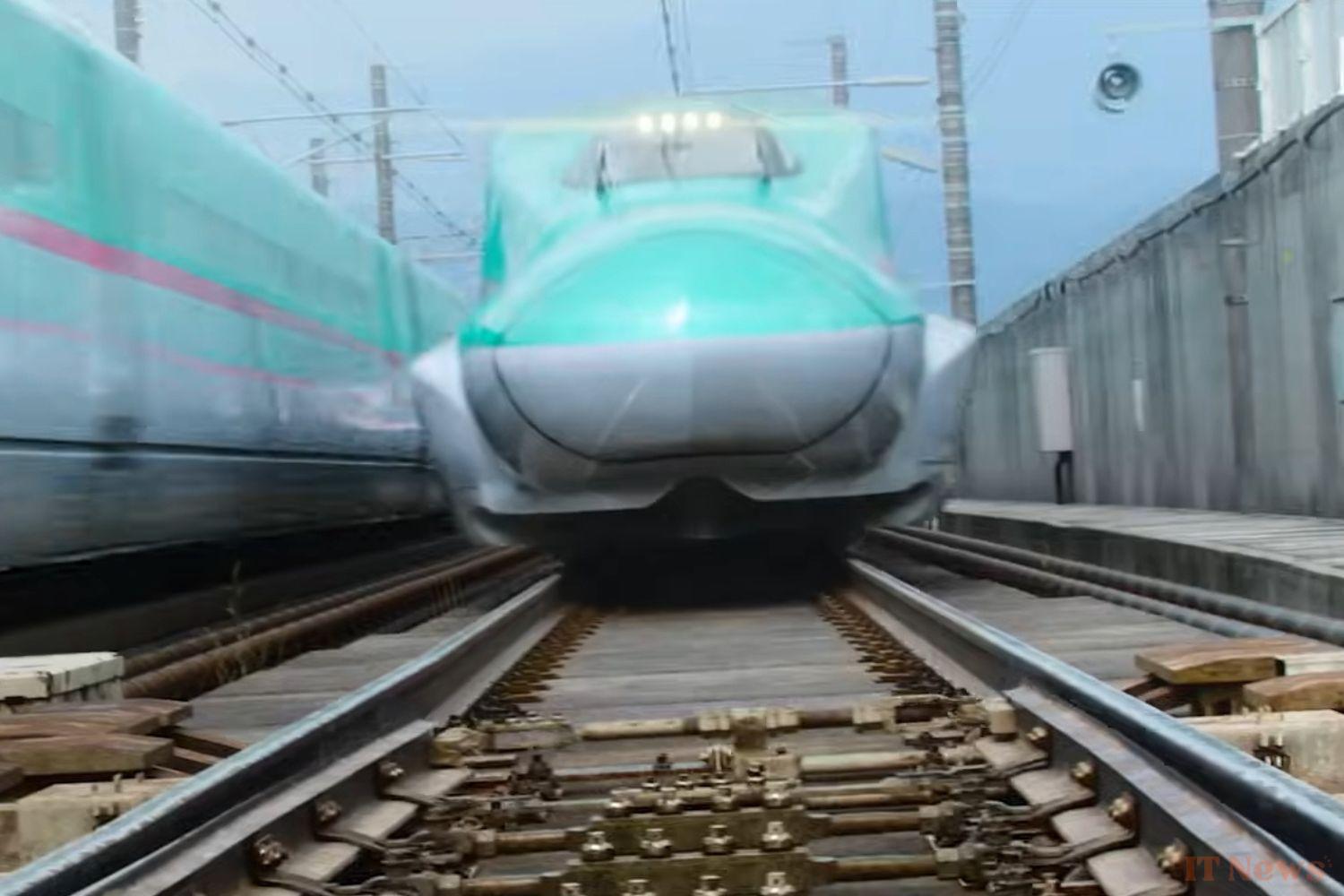The Shinkansen, the high-speed train that crosses Japan, has been booby-trapped. If it drops below 80 km/h, a bomb explodes, threatening the lives of all its passengers. A race against time begins to catch the terrorists and rescue the hostages. Does this scenario ring a bell? What if we replaced the Shinkansen with a bus and put Keanu Reeves inside?
A whole generation has worn out the tape of Speed, a 1994 film by Jan de Bont that has earned its stripes as a classic (at least for us). However, the general public is often unaware that the American feature film was inspired by Super Express 109, a 1975 Japanese production whose synopsis we gave you at the beginning of the article. If we're talking about it today, it's because Netflix released Bullet Train Explosion this week, a work presented as a remake of Super Express 109, entrusted to the hands of Shinji Higuchi, director of the exceptional Shin Godzilla. And you know us: a script that smells of adrenaline with a competent director at the helm and modern means at our disposal, we had to greedily throw ourselves into this new version. Even without Keanu Reeves.
What is Bullet Train Explosion about?
Well, we're not going to be very original since as a remake, Bullet Train Explosion will use almost the same storyline as Super Express 109. The Shinkansen has been rigged and must not go below 100 km/h or boom! The novelty lies in the terrorist's demand that the ransom be paid by the Japanese themselves.
Faced with a government that refuses to negotiate with the terrorists, the railway company and the staff on board will do everything to save the train's occupants.
High-speed train for a very soft film
You have to be prepared to compromise—an expression used by the over-fifty and one fake young person on the editorial staff—and recognize that the feeling you get from Bullet Train Explosion will depend mainly on your expectations. Far from the supposed sensationalism, the film attempts a more realistic approach to its concept, highlighting the work of the East Japan Railway Company. A unique vision that shows what could really happen in this kind of situation and the solution will not come so much from a hero as from a plethora of employees, in various positions.
There is something refreshing about seeing a crisis managed without Hollywood clichés and where each person has a role to play. No, the cabin chief isn't an electrician, and no, the signalman in charge doesn't know anything about Shinkansen design. Even in its ransom demand, the film aims to highlight the people and their ability to act and pull together in the face of danger and an inactive government. There's a very nationalistic message about the representation of Japan's lifeblood, namely its population. Even if it involves a great advertisement for the East Japan Railway Company, which has a truly, truly exceptional staff, to the point of being ridiculous. Where does realism end and pandering begin? That is the question.
However, it wasn't the excessively valiant portrayal of the JR that personally took us out of the feature film. Perhaps we were expecting more of a Speed in form, we admit, but we felt a certain lack of adrenaline throughout. The film moves at the same pace for over two hours, to the point where there's little difference between an action sequence and a conversation between passengers. A throbbing pace that absolutely doesn't justify its length with omnipresent downtime.
You shouldn't judge a book by its cover, but when a film is titled Bullet Train Explosion, you expect a sense of speed, which isn't the case with a 300km/h capacity that quickly halves, and you expect a more energetic direction. Added to this is a seriously shaky plot. While it does have the merit of not getting lost in subplots and staying as close as possible to the action, its comparison with Super Express 109 – which will actually be more of a sequel than a remake – lets it down with a terrorist whose justification is particularly weak, to be polite.
When you follow two films that have already exhausted the concept, you have to know how to differentiate yourself. Bullet Train Explosion takes a fresh approach to this genre, which may satisfy rail fans, but fans of tense thrillers and fast-paced action may find themselves stuck on the platform. Long live the East Japan Railway Company!





0 Comments